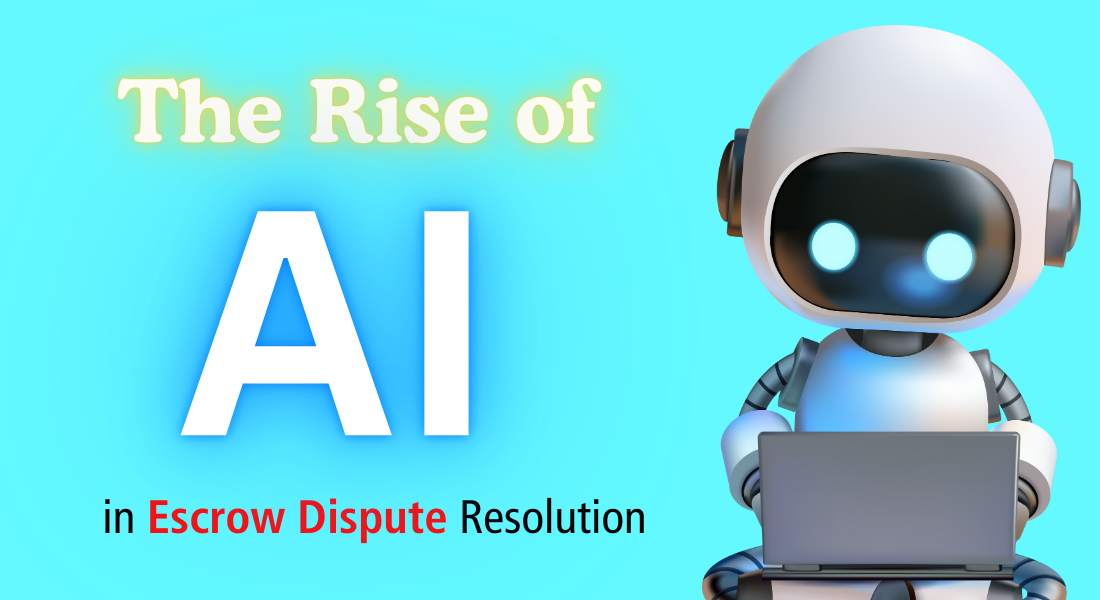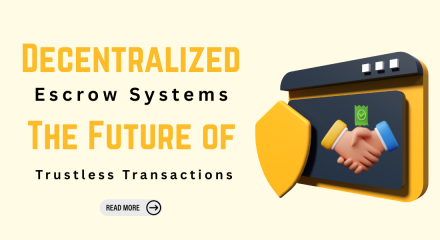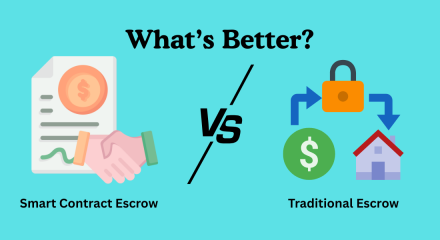
The Rise of AI in Escrow Dispute Resolution
Introduction:
The rise of Artificial Intelligence (AI) has touched every aspect of modern life, and the financial industry is no exception. One area where AI is particularly transforming operations is in escrow dispute resolution. Escrow services, which traditionally serve as neutral third parties to hold funds until all conditions of a transaction are met, have long been associated with complex procedures and potential for dispute. However, AI is now emerging as a game-changer in this sector, streamlining dispute resolution, enhancing security, and reducing costs for all parties involved.
In this article, we will explore how AI is shaping the future of escrow dispute resolution, the benefits it brings, its potential challenges, and how this technology is poised to redefine the financial landscape.
What is Escrow and the Role of Dispute Resolution?
Escrow: A financial arrangement in which a third-party neutral service (an escrow agent) holds funds or assets on behalf of the transacting parties until predefined conditions are fulfilled. This is common in real estate, online marketplaces, mergers, and acquisitions.
Escrow Dispute Resolution: Disputes may arise in escrow agreements when one party disagrees with the fulfillment of the contract's conditions. The neutral third party (escrow agent) is tasked with investigating the matter and ensuring that funds or assets are released or returned according to the terms of the agreement. Traditionally, this process has involved manual intervention, which can be slow, costly, and prone to human error.
The Growing Need for AI in Escrow Dispute Resolution
As the world becomes more connected and global commerce expands, the complexity of transactions increases. In the traditional escrow dispute resolution process, delays, errors, and subjectivity often lead to inefficiencies. The need for a solution that is faster, more transparent, and cost-effective has driven the adoption of AI in escrow services. Let's examine how AI is addressing these needs.
How AI is Revolutionizing Escrow Dispute Resolution
1. Automation of Dispute Analysis and Resolution
AI-powered algorithms can quickly analyze the terms and conditions of an escrow agreement and compare them with the actions taken by both parties. By automating the analysis, AI can determine the likelihood of a dispute arising, assess the validity of claims, and offer resolutions based on historical data and pre-defined contract rules. This significantly reduces the time and human effort required to resolve disputes.
For example, in real estate transactions, AI can review property documents, identify discrepancies or incomplete conditions, and propose a course of action that complies with contract specifications. This automation not only speeds up resolution but also improves accuracy.
2. Natural Language Processing (NLP) for Effective Communication
Escrow disputes often arise from misunderstandings between parties, particularly when communication is unclear or ambiguous. AI systems using Natural Language Processing (NLP) can analyze communications, such as emails or contract terms, and identify discrepancies or ambiguities that might lead to disputes. By processing the language used in contracts and communications, AI can offer real-time clarifications, ensuring that both parties understand their obligations and preventing potential conflicts.
3. Smart Contracts for Self-Executing Escrow Agreements
AI can facilitate the use of smart contracts in escrow transactions. Smart contracts are self-executing contracts where the terms of the agreement are written into code and automatically enforced when specific conditions are met. These contracts can be programmed to automatically release funds or assets upon meeting predefined conditions, reducing the need for third-party intervention in dispute scenarios.
AI helps create these self-executing contracts by analyzing historical data and predicting potential areas where disputes could arise. By reducing human involvement, the likelihood of errors or biases in decision-making is minimized, and the process becomes more efficient.
4. Predictive Analytics to Prevent Disputes
AI systems equipped with predictive analytics can identify patterns in previous transactions to predict potential disputes before they occur. By analyzing data such as transaction history, payment patterns, or historical disputes, AI can offer early warnings of potential issues, allowing escrow agents to intervene before a dispute escalates.
For instance, AI tools can detect discrepancies between buyer and seller expectations and immediately notify both parties of the issues, enabling them to resolve misunderstandings without the need for formal dispute resolution.
5. Enhanced Security and Transparency
AI can enhance the security of escrow transactions by identifying suspicious behavior or irregularities in the transaction process. AI-powered systems can detect fraud, money laundering, or unauthorized access to escrow accounts, ensuring that the process remains secure. Furthermore, AI's ability to track and store data in real time provides transparency for all parties, offering a clear audit trail in case of disputes.
Benefits of AI in Escrow Dispute Resolution
1. Speed and Efficiency
AI can process transactions and resolve disputes much faster than traditional human methods. With automated systems handling analysis, data retrieval, and decision-making, disputes are resolved in a fraction of the time, leading to faster transactions and enhanced client satisfaction.
2. Reduced Costs
The automation of dispute resolution significantly reduces operational costs. Escrow agents no longer need to dedicate extensive time and resources to reviewing each case manually, and parties involved in disputes can save on legal fees and administrative expenses.
3. Accuracy and Consistency
AI removes the subjectivity and potential bias that comes with human decision-making. By relying on predefined rules and data-driven insights, AI ensures that decisions are made based on facts and contractual terms, leading to more accurate and consistent resolutions.
4. Scalability
As the volume of transactions increases, AI systems can scale to handle large volumes of escrow disputes without compromising on quality. This makes AI an ideal solution for handling disputes in high-transaction environments, such as e-commerce platforms and global real estate markets.
5. Improved User Experience
With AI, parties involved in escrow agreements can enjoy a more streamlined, user-friendly process. Automated systems provide real-time updates, and dispute resolution mechanisms are clearer and more efficient, improving the overall experience for buyers, sellers, and escrow agents.
Challenges and Limitations of AI in Escrow Dispute Resolution
While AI brings many advantages to the table, it also presents certain challenges that must be addressed:
1. Data Privacy and Security
Escrow transactions involve sensitive financial and personal information. Ensuring the privacy and security of this data in an AI-powered system is crucial. Stricter data protection regulations, such as GDPR, need to be adhered to in order to build trust among users.
2. Dependence on Quality Data
AI systems rely heavily on the quality of the data they are trained on. Inaccurate, biased, or incomplete data can lead to incorrect dispute resolution outcomes. It is important for AI systems to be trained on comprehensive and representative datasets to ensure reliable results.
3. Regulatory and Legal Hurdles
As AI becomes more integrated into financial transactions, regulatory bodies will need to update existing laws and frameworks to account for the use of AI in dispute resolution. Governments and industry leaders must ensure that AI systems are compliant with legal standards and are transparent in their decision-making processes.
4. Lack of Human Judgment in Complex Disputes
While AI can handle most routine disputes, there may be situations where human judgment is necessary, particularly in highly complex or nuanced cases. Escrow agents and legal professionals will still need to play a role in certain cases, especially those involving intricate legal issues or emotional considerations.
The Future of AI in Escrow Dispute Resolution
The future of AI in escrow dispute resolution looks promising. As the technology continues to evolve, AI will likely become an integral part of escrow services, enabling faster, more transparent, and cost-effective transactions. The combination of AI with emerging technologies such as blockchain and smart contracts will further enhance the capabilities of escrow services, ensuring that both buyers and sellers have a seamless experience.
Ultimately, AI's ability to automate, analyze, and resolve disputes will pave the way for a new era of efficient financial transactions, where human intervention is minimized, and conflicts are resolved in real-time.
Conclusion
The rise of AI in escrow dispute resolution marks the beginning of a new era in financial transactions. By automating processes, improving accuracy, and enhancing security, AI is poised to transform the way disputes are resolved in escrow agreements. While challenges remain, the future of AI in this field is bright, and its potential to streamline operations and improve user experience is limitless. As AI continues to evolve, it will play a pivotal role in shaping the future of escrow services and ensuring more secure, transparent, and efficient transactions for all parties involved.





